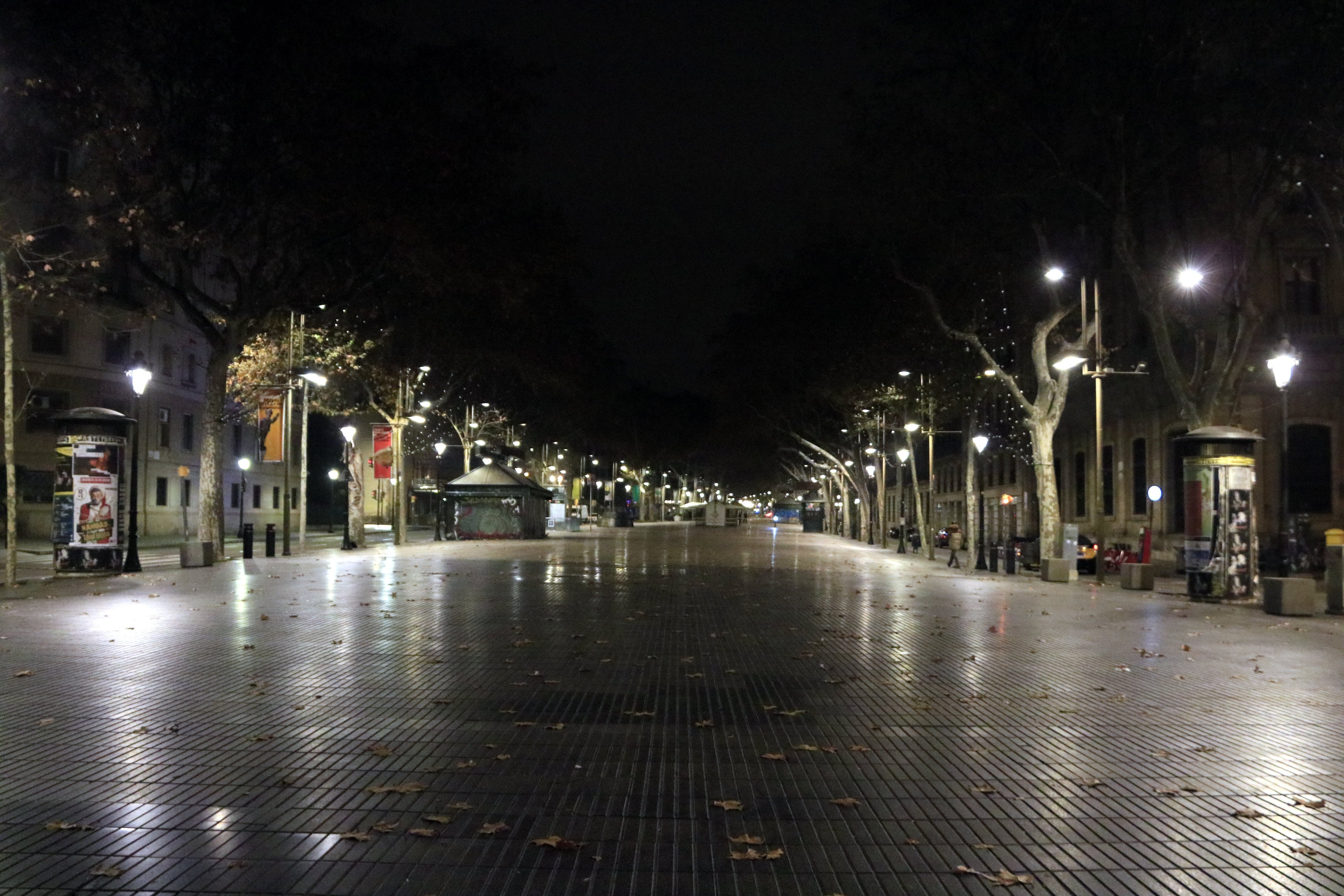Catalonia is to say adeu, bona nit to its curfew this Friday, after twenty-eight days of restricted mobility throughout Catalonia at night. This means that from Friday 21st there will no longer be any night-time restrictions anywhere in Catalonia. The government confirmed this Monday that there will not be a second extension of the current 1am-6am curfew which was brought in as a measure to curb the omicron wave of the pandemic, the sixth surge in cases in Catalonia. The decision was made by the Covid delegate committee, which met on Monday afternoon. As for the other restrictions, the final details will be decided on Tuesday.
The Catalan government's Covid committee was headed by the president Pere Aragonès, with the vice-president, Jordi Puigneró, and the ministers Josep Maria Argimon, Laura Vilagrà, Joan Ignasi Elena, Josep Gonzàlez-Cambray and Violant Cervera. In fact, government spokesperson Patricia Plaja said last week that signs of improvement in the evolution of the sixth wave were being detected and that an end to the curfew would be put on the table. Plaja stated that "the impact of the omicron variant is very different from that of delta, with transmissibility very high, but the effects on vaccinated people being lower". In this regard, the spokesperson stated that "the vertical increase in the epidemiological data has stopped" and that, therefore, the curfew will not be prolonged. "Night-time confinement will not be extended beyond its current period."
Curfew "invasive", but caution is still needed
Thus, from January 21st there will be no curfew in Catalonia. On December 23rd, just as the festive season began, the Catalan High Court gave the green light to the application of the curfew by municipalities based on Covid incidence levels in each town, to try to limit the spread of the highly-infectious omicron variant by avoid congestion and gatherings of people drinking on the street.
“Today’s message is not one of relaxation,” said Plaja almost a week ago. The Catalan government, however, considers the curfew to be "invasive" and it is therefore the first "measure that, if possible, should be eliminated". However, the lifting of other measures in the current situation is not yet contemplated. Plaja hinted that the next step in easing restrictions could be the limits on gatherings, which are now set at a maximum of 10 people. At the moment, there is no planned date for the re-opening of nightlife, although the spokesperson stressed, when asked about the issue, that it will take place as soon as possible.
One person in four, infected
The official data of the health ministry on Covid shows that since March 2020 a total of 8,093,036 cases of coronavirus have been registered across the Spanish state. From the beginning of the pandemic, when there was not enough testing to verify the diagnoses, there has been a constant feeling that Covid positive cases were in reality much higher than the figures reported.
Now, the Spanish ministry's calculations confirm the suspicion and the actual number of infections since the pandemic began is thought to be much higher than the number of cases officially verified: at least 12 million Spanish citizens have been infected, representing 25% of the population of the state. The total in the official figures up till now has been 8 million, so 4 million infections went unregistered.

